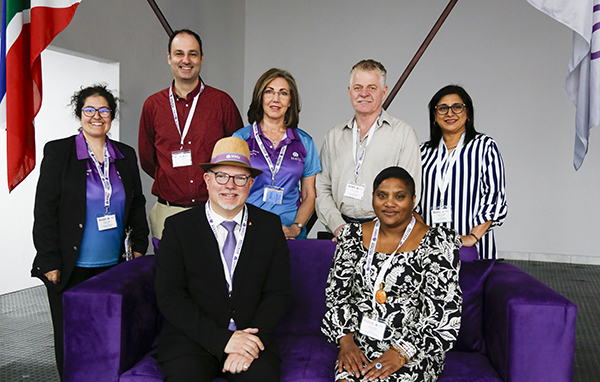The Higher Education Learning and Teaching Association of Southern Africa (HELTASA), in collaboration with the North-West University’s (NWU’s) Centre for Teaching and Learning (CTL), held its annual (Un)conference at the Tsebonokeng Hall on the NWU’s Vanderbijlpark Campus from 24 to 26 October 2023.
Colleagues from across Southern Africa came together to discuss and share ideas on enhancing teaching and learning in higher education.
The (Un)conference – themed "Celebrations of Scholarship: Connecting the Lights" – covered various topics. These included digital transformation, learning and teaching experiences in higher education, scholarship, and higher education practices for changing times. It also highlighted the importance of planning for load shedding, generators, and solar panels in higher education teaching and learning.
Furthermore, the goal of the conference was to acknowledge accomplishments and explore ways of moving forward, despite the challenges and issues that need to be addressed. During the conference, attendees had the opportunity to participate in various activities such as panel discussions, expert workshops, poster presentations, artistic demonstrations, dialogues, and oral presentations. The event also included a welcome evening and gala dinner, offering participants the opportunity to network and establish relationships.
Prof Linda du Plessis, the NWU's deputy vice-chancellor for planning and Vanderbijlpark Campus operations and a speaker at the conference, said that the conference was a great success and exceeded expectations. "HELTASA is a professional association for academic developers, academics and higher education practitioners, inclusive of other significant role-players in the higher education sector. In a developing country, universities are seen as beacons of hope, a place young people aspire to go to. This places a responsibility on us to live up to those expectations and make sure that the work we do, whether it is teaching or research, has an impact and addresses societal needs," said Prof Du Plessis. She added that the "Un" in (Un)conference referred to the opposite of the typical nature of a meeting, where an expert speaker addresses a number of participants. "The main premise of an un-conference, un-session, or un-meeting is flipped. In other words, the topic, engagement, and overall experience are the responsibility of the participants. The assumption is that the most knowledgeable person at an event might not be the one at the podium; rather, he or she might be in the audience.
“Therefore, the HELTASA (Un)conference presented an excellent opportunity to move away from ‘show and tell’ to critical engagements. An event like this is not just about sharing academic experiences, it is also a place to celebrate small successes. To celebrate the fact that we work in a dynamic environment, to celebrate the fact we have academic freedom, and to celebrate the fact that we have opportunities to explore and experiment," she added.
The (un)conferencing methodology is very much an open and emerging space and HELTASA congratulated the NWU for bringing flavour and variation to what this looks like from the university’s contextual lens. It is now HELTASA’s responsibility to ensure they reflect on the feedback received and create conditions to galvanise the networking, connection and exchange that was initiated through this successful event.

In front are Prof Robert Balfour, deputy vice-chancellor for teaching and learning, and Rieta Ganas, president of HELTASA.
Standing behind them are Dr Manuela Fernandes-Martins, (Un)Conference programme coordinator, Dr Greig Krull, HELTASA deputy chair, Dr Esmarie Strydom, director for special projects and research in the Centre for Teaching and Learning (CTL), Prof Willie van Vollenhoven, CTL chief director, and Prof Subethra Pather, HELTASA deputy chair.
